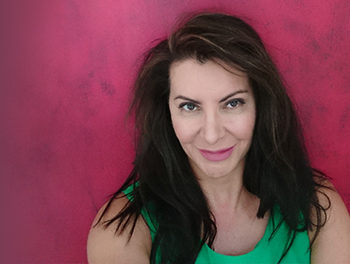Oysters, chocolate, red wine - these have long been thought of as aphrodisiac foods, along with many other menu items. But is there any truth to these libido-boosting claims? We…
As exciting as it is to start off a new relationship, transitioning into a couple can be challenging. EliteSingles talked with psychotherapist and relationship expert Louisa Niehaus about how to be in a relationship and move from singledom to a couple in a healthy way. Here she also touches on how to retain your individuality but also embrace your new couple status. This is what she has to say…
The Early Days: How to be in a Relationship and Have Healthy Boundaries
I’m fascinated with the concept of love and my wish is for you to be able to keep the spark as bubbly for as long as possible. Maintaining this sparkle means addressing some very practical things about how to be in a relationship. Making the transition from singledom to a couple requires an awareness of your own needs and requirements in a relationship. Overlooking or making assumptions in a new relationship can lead to disappointment and misunderstandings at an early stage in your relationship.
The dizziness of new love often means conventional wisdom flies out of the window. This flouting of convention is a necessary part of love as it means you will be more likely to overlook things in the beginning stage of a relationship, allowing you to get on with the important business of falling in love.
Knowing your needs can avert misunderstandings in a new relationship. In the heady romanticism of new love, we expect the other to magically know what our needs or requirements are around practical things such as frequency of communication, availability, finances or even food! Being aware of what makes you comfortable can go a long way in averting future misunderstandings.
Discussing these topics might feel awkward initially but if you are both wanting to be in a relationship, addressing these issues is healthy and worthwhile. If you have been single and self- sufficient for some time, accommodating a significant other in your life can be challenging. It’s difficult for independent personalities to accept help and it can be frustrating for a partner who would like to be more involved.
Equally so, it can be challenging for someone that has come out of a long-term relationship and is used to a different set of engagements and routine. These expectations- which have the potential to become assumptions, – are often the unseen challenge in healthy transitioning from single to couple, when we are still figuring out how to be in a relationship!
How to be in Relationship and Thrive: Top Tips
Transitioning from single to couple can mean less personal time and space. Accommodating a new partner means some things change to incorporate your partner. Those weekends lazing on the couch binge watching sport or a series in your old pajamas may require purchasing a new pair of pajamas and finding movies to watch that you both like. Take -out from the local might magically morph into preparing gourmet food from scratch.
Sharing a bed with your new partner could affect your concentration levels at work as well as your sleeping patterns. The cozy comforts of singledom such as socks strewn around and leaving the dishes until the morning should give way to picking up your socks, not wearing your face mask to bed and tidying up after dinner. The beginning phases of coupledom are characterized by us wanting to present ourselves at our best. This can be exhausting!
The following are common areas of transition that can help you both maintain a healthy relationship and work out together to be in a relationship that is best for both of you.
Communication
Couples frequently use texting and phone calls to remain in contact. Someone who requires regular communication may perceive their partner to be disinterested or remote if they do not communicate as frequently. A partner who is not a frequent communicator may feel pressurized to respond in a manner that is unfamiliar to them. It is helpful to know the intensity of a partner’s work or family schedule and what level or communication works for both of you.
Rituals
These can encompass things like food, birthdays, holidays, religious or traditional celebrations. You may find that you both create new ways of accommodating important events into your lives. Birthdays and other significant events have the potential to author your unique celebrations as a couple. Food is a beautiful way to transition into your relationship. The ritual around meals can transform into a shared delight. Even if one of you likes preparing wholesome meals from scratch and the other is happy with take out, food has the potential to be a new, shared interest.
Friendships
Maintain your friendships. These represent your independence and are what shape and expand you. Maintaining your friendships allows for a healthy space in which you can both miss and appreciate the other and reconnect with newness between you. And it’s good for a couple to both have separate spaces and social support away from the relationship itself.
Finances
Be upfront with this subject, define your financial relationship as a couple. If one of you is moving in with the other, or you are both moving into a new shared space, discuss financial contributions and who will be responsible for what. Defining this at the outset means that there is less ambiguity and this clarity will allow for both of you to establish boundaries and responsibilities. Not addressing financial issues at the start can lead to resentment and the longer these remain unaddressed, the greater the potential for misunderstanding.
Availability
How often and when will you see one another? Don’t make assumptions about availability. Merely because you have been seeing one another with regularity does not mean that this will remain the status quo. It is important to take into account your working schedules, children and family commitments. Misunderstandings often arise when one partner has not communicated their travel plans or misunderstands the other’s needs regarding personal time and space
Be clear on how important this is to you both. Some people need time out to recharge and become irritated when they are unable to spend time alone. It’s unfair to become moody and withdrawn when you feel resentful at not having time out. Express this need explicitly and explain that your time spent apart will be regenerative and positive for you and your relationship.
Enjoy figuring it out together
Being in a new relationship doesn’t come with a manual, the beauty lies in discovering and exploring your way together. Don’t expect your new partner to be responsible for anticipating your needs nor for understanding you in your entirety. Doing so will set you both up for disappointment. Help one another to understand what is important to you both.
Being in a healthy relationship allows you to draw on the experience of your past relationships, using the wisdom of what you learned about yourself and doing things differently this time around. Enjoy the experience of figuring how to be in a relationship together – it’s a unique opportunity to create just the kind of beautiful relationship you both dream of!
About Louisa Niehaus:
Louisa Niehaus is a psychotherapist, consulting in South Africa and internationally to a broad base of clients, focusing on relationships, personal growth, trauma, conflict management and self-actualization. She has a specialization in trauma therapy, and a particular interest in the psychology of love, midlife transition and awakening. Niehaus has a strong focus on adult actualization, specializing in relationship insights and intrinsic growth using the principles of depth psychology. Find out more about her work and courses here.





 English
English French
French